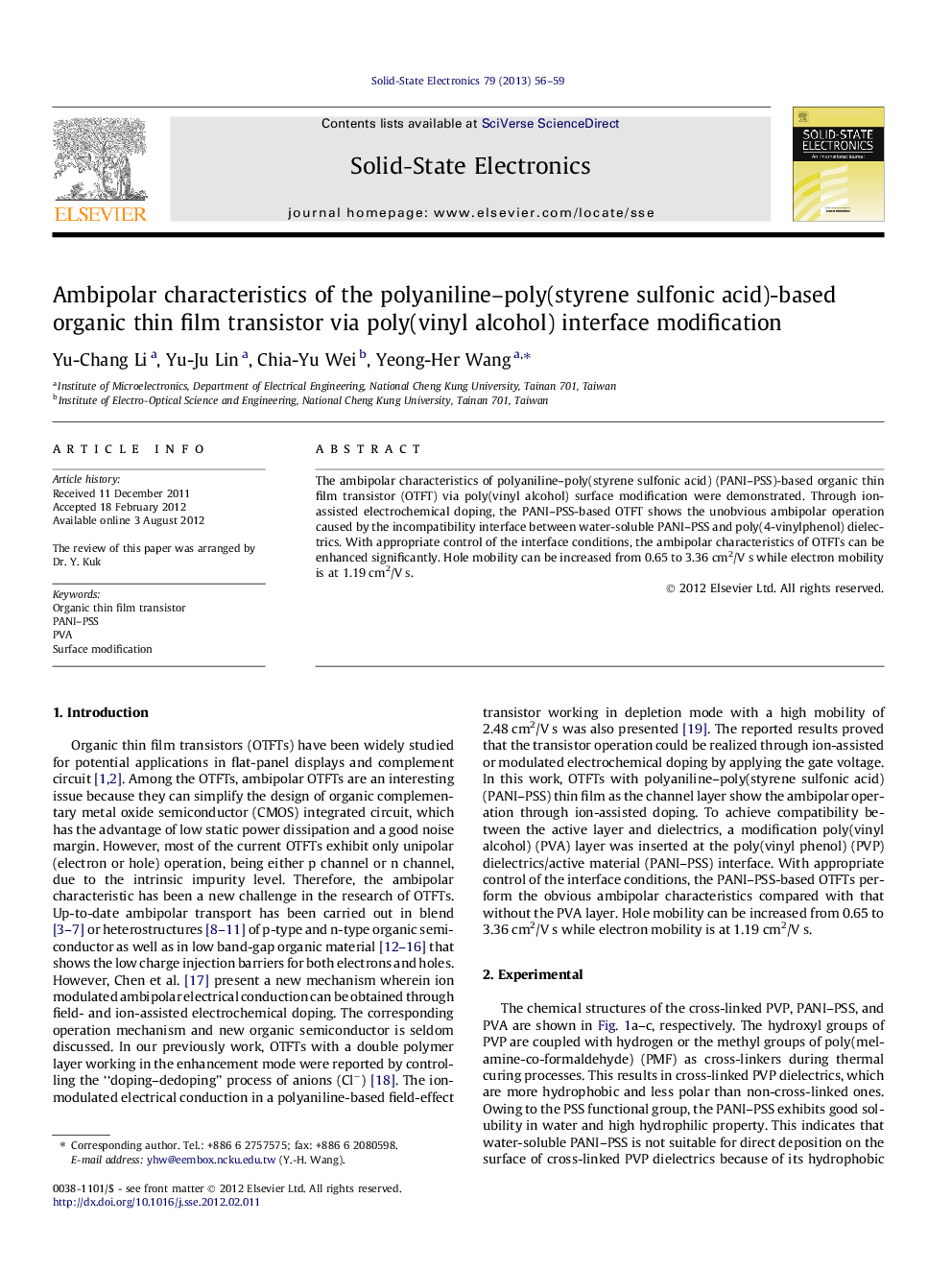| Article ID | Journal | Published Year | Pages | File Type |
|---|---|---|---|---|
| 748433 | Solid-State Electronics | 2013 | 4 Pages |
The ambipolar characteristics of polyaniline–poly(styrene sulfonic acid) (PANI–PSS)-based organic thin film transistor (OTFT) via poly(vinyl alcohol) surface modification were demonstrated. Through ion-assisted electrochemical doping, the PANI–PSS-based OTFT shows the unobvious ambipolar operation caused by the incompatibility interface between water-soluble PANI–PSS and poly(4-vinylphenol) dielectrics. With appropriate control of the interface conditions, the ambipolar characteristics of OTFTs can be enhanced significantly. Hole mobility can be increased from 0.65 to 3.36 cm2/V s while electron mobility is at 1.19 cm2/V s.
► The surface layer poly(vinyl alcohol)(PVA) could change water contact angle on the nonpolar surface of cross-linked PVP from 62 degree to 49 degree. ► Through ion-assisted doping and PVA surface modification, PANI-PSS OTFTs show the ambipolar operation. ► The PVA-modified OTFT show the enhanced hole mobility from 0.65 to 3.36 cm2/Vs while electron mobility is at 1.19cm2/Vs.
